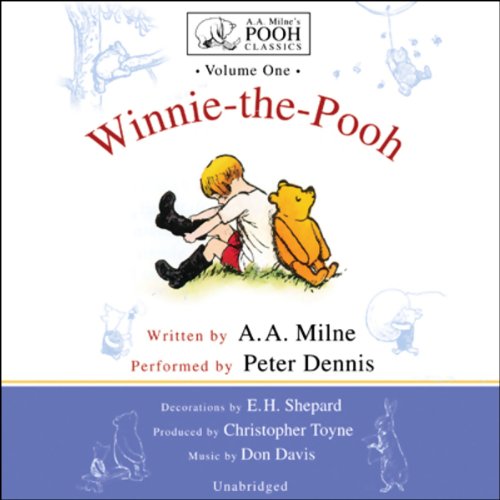
Pooh straps on his backpack and goes out searching for honey with his pal Piglet in this adorable new plush toy and board book format.

Pooh straps on his backpack and goes out searching for honey with his pal Piglet in this adorable new plush toy and board book format.

Inspirational prose mixed with magnificent images makes this calendar a must for any office.
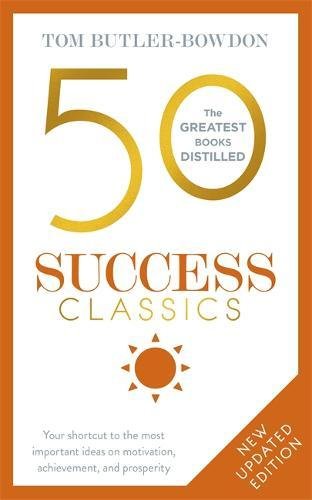
This brand new updated edition of Tom Butler-Bowdon’s guide to the texts that will help you find success in your professional and personal life. Contains eight brand new chapters summarising recent classics such as Grit by Angela Duckworth and Outliers by Malcolm Gladwell.
Millions of us are drawn each year to find the one great book that will capture our imagination and inspire us to chart a course to personal and professional fulfillment. 50 Success Classics is the first and only ‘bite-sized’ guide to the books that have helped legions of readers unleash their potential and discover the secrets of success. Mapping the road to prosperity, motivation, leadership and life success, 50 Success Classics summarizes each work’s key ideas to make clear how these timeless insights and techniques can inform, inspire and illuminate a path to authentic achievement.
Tom Butler-Bowden presents this wide-ranging selection of enduring works in the literary and the legendary: pioneering thinkers, philosophers and powerful leaders who have shown us how to Think and Grow Rich, acquire The 7 Habits of Highly Effective People, become The One-Minute Manager, solve the challenging puzzle of Who Moved My Cheese? and discover The Art of Wordly Wisdom. From the inspirational rags-to-riches stories of such entrepreneurs as Andrew Carnegie, Warren Buffet and Sam Walton to the leadership lessons of Sir Ernest Shackleton, Eleanor Roosevelt, Abraham Lincoln and Nelson Mandela, 50 Success Classics goes back to the basics to find the classic books on staying true to ourselves and fulfilling our potential. Practical yet philosophical, sensible yet stimulating, the 50 all-time classics span biography and business, psychology and ancient philosophy, exploring the rich and fertile ground of books that have helped millions of people achieve success in their work and personal lives.
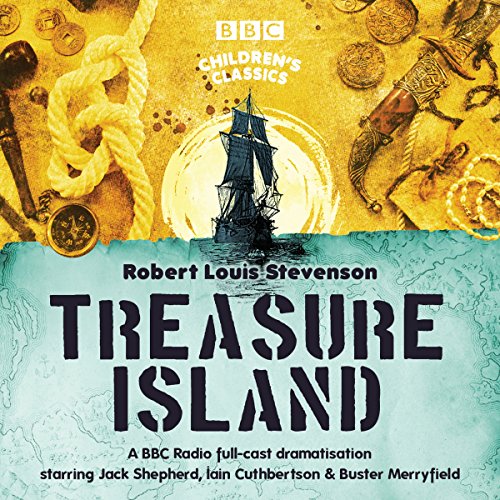
Treasure Island is an adventure novel by Scottish author Robert Louis Stevenson, narrating a tale of “buccaneers and buried gold”. First published as a book on 23 May 1883, it was originally serialized in the children’s magazine Young Folks between 1881 and 1882 under the title Treasure Island or, the mutiny of the Hispaniola with Stevenson adopting the pseudonym Captain George North. Traditionally considered a coming-of-age story, Treasure Island is a tale noted for its atmosphere, characters and action, and also as a wry commentary on the ambiguity of morality – as seen in Long John Silver – unusual for children’s literature. It is one of the most frequently dramatized of all novels. The influence of Treasure Island on popular perceptions of pirates is enormous, including such elements as treasure maps marked with an “X”, schooners, the Black Spot, tropical islands, and one-legged seamen bearing parrots on their shoulders.Climb aboard for the swashbuckling adventure of a lifetime. Treasure Islandhas enthralled (and caused slight seasickness) for decades. The names Long John Silver and Jim Hawkins are destined to remain pieces of folklore for as long as children want to read Robert Louis Stevenson’s most famous book. With it’s dastardly plot and motley crew of rogues and villains, it seems unlikely that children will ever say no to this timeless classic. –Naomi Gesinger
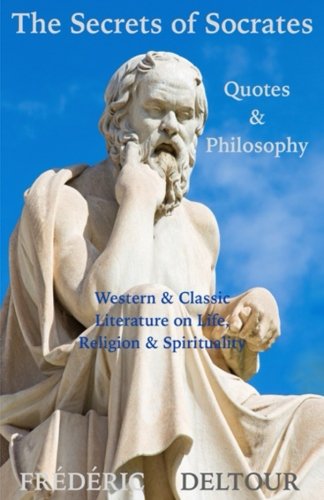
– The Secrets of Socrates: Philosophy, Happiness & Spirituality. –
How to live a more harmonious life, serene and happy? Recognized as one of the founder of modern Philosophy, Socrates certainly must have understood something about this… But before going further let’s define what philosophy means. Etymology is often the best way to deeply understand the meaning of words. In this context, philosophy literally means “love of wisdom”. It is also the study of the nature of existence, reality and knowledge. The love of wisdom is important for Socrates as often stated in his teachings. Socrates says: “To know thyself is the beginning of wisdom.” He is also at the origin of what is called the Socratic method, which is a type of dialogue in which asking and answering questions is the way to stimulate critical thinking which in turn brings deeper understanding… The following quotes will eventually bring you insights and clear comprehension. By doing so, you will become convinced about the truth lying behind these quotes and therefore your own critical thinking and sense of logic will become more accurate. “Employ your time in improving yourself by other men’s writings so that you shall come easily by what others have labored hard for.”
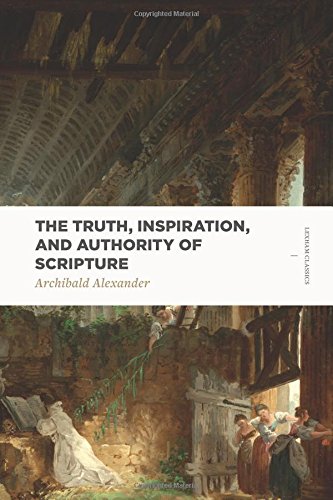
This book, originally published in 1836 as Evidences of the Authenticity, Inspiration, and Canonical Authority of Holy Scripture, contains Archibald Alexander’s defense of God’s role in the inspiration of Scripture. Alexander devotes time to defending the truth of Scripture, the veracity of miracles, the fulfillment of prophecy, and the credibility of the Gospels, firmly supporting the view that the revelation of God in the Bible is neither improbable nor unreasonable. Lexham Classics is a series of beautifully typeset new editions of classic works. Each book has been carefully transcribed from the original texts, ensuring an accurate representation of the writing as the author intended it to be read.
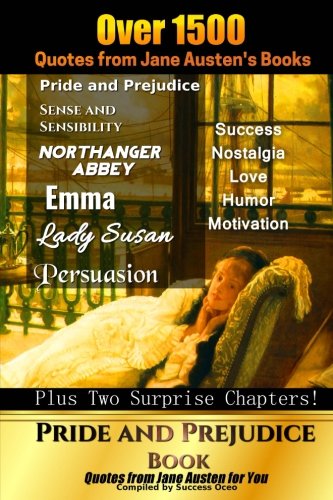
Treasure Island of Golden Nuggets from the Golden Queen Jane Austen
Now that you have read Jane Austen’s book or books, is there something you could do with Jane Austen’s work, other than reading her work again?
Yes!
People like her books for various reasons. Some like her plots. Others are fascinated by her characters. Still, others are under the enchanted spell of her earnest depiction of romance and courtship.
Her books sell like hotcakes even to this day. She is a legend. And her books have stood the test of time.
Assuming that you have read at least one of her novels, at least once, this book can be your great companion in several ways:
1. Jane Austen, no doubt, held some great ideas about life and people. The quotes from this book can help you to get and stay motivated. They can teach you some important success principles. Maybe they can provide you with some excellent insights about a challenge that you are facing now.
2. Going through these quotes and reflecting on them can give you a “great” feeling and you re-experience the unparalleled feeling when you read her book(s).
3. The book also houses many of her funny, punchy and crunchy lines.
4. Every one of us needs a “Source” of support to go through this life and play like a champion. Assuming that you are an “Austenite” or at least an admirer of Jane Austen, these quotes from her masterpieces could be your very own source of support, solace, and strength. The characters in her novels, like said before, would inspire you, make you laugh, and even provide you solace through these lines.
A Simple Technique:
One person uses a simple technique with this book. When you read and go through the quotes and reflect on them, you can simply put one of the following symbols next to the quote:
I – for quotes that are inspirational and motivational.
H- For lines that are funny and make you laugh or smile.
L- for “Love” or romantic lines that you like.
P- for lines that are motivational, as well as have some “Success and Living” “p”rinciple for your life. You apply these to your life. You can also use these dialogues as “Self-talk” to reprogram yourself or to give you courage, motivation, and encouragement.
W – If you are an aspiring writer, you can add a “W” next to those lines where you discover some ‘Austen” touch and technique. You feel like you have understood something in her writing that caused to bring in a particular effect in that section of the book.
F – For friendship related lines and quotes.
So, when you have gone through the book once and have these symbols, what you possess then is something that most don’t.
You have a book that is a self-help book. A book with your favorite funny lines where you can head to when you feel down. A book that has some insights about writing. Romantic lines that you can share with your spouse or lover (and have a blast). And, in general, a book that brings a feeling of euphoria in you. All from your favorite writer, JA.
From that point forward, you have one “Source” for at least a few needs of yours.
Above all, you have the presence of Jane Austen herself. You can open any page on any day and a message would be waiting for you.
So, as you read her books, you can also keep this companion with you. This is like a reference book. You can carry it with you and refer to it as per your “need” of the hour.
“The distance is nothing when one has a motive.”
– Jane Austen
Just imagine zipping through from Elizabeth Bennet to Lady Susan Vernon to Anne Elliot! Juxtaposing. Let this “PP Book” be a new beginning in your life.
You will, you must and you can!
Scroll Up and Get Your Copy!
For All Jane Austen’s Books, Visit:
goo. gl/0oisZU”It is a truth universally acknowledged, that a single man in possession of a good fortune, must be in want of a wife.”
Next to the exhortation at the beginning of Moby-Dick, “Call me Ishmael,” the first sentence of Jane Austen’s Pride and Prejudice must be among the most quoted in literature. And certainly what Melville did for whaling Austen does for marriage–tracing the intricacies (not to mention the economics) of 19th-century British mating rituals with a sure hand and an unblinking eye. As usual, Austen trains her sights on a country village and a few families–in this case, the Bennets, the Philips, and the Lucases. Into their midst comes Mr. Bingley, a single man of good fortune, and his friend, Mr. Darcy, who is even richer. Mrs. Bennet, who married above her station, sees their arrival as an opportunity to marry off at least one of her five daughters. Bingley is complaisant and easily charmed by the eldest Bennet girl, Jane; Darcy, however, is harder to please. Put off by Mrs. Bennet’s vulgarity and the untoward behavior of the three younger daughters, he is unable to see the true worth of the older girls, Jane and Elizabeth. His excessive pride offends Lizzy, who is more than willing to believe the worst that other people have to say of him; when George Wickham, a soldier stationed in the village, does indeed have a discreditable tale to tell, his words fall on fertile ground.
Having set up the central misunderstanding of the novel, Austen then brings in her cast of fascinating secondary characters: Mr. Collins, the sycophantic clergyman who aspires to Lizzy’s hand but settles for her best friend, Charlotte, instead; Lady Catherine de Bourgh, Mr. Darcy’s insufferably snobbish aunt; and the Gardiners, Jane and Elizabeth’s low-born but noble-hearted aunt and uncle. Some of Austen’s best comedy comes from mixing and matching these representatives of different classes and economic strata, demonstrating the hypocrisy at the heart of so many social interactions. And though the novel is rife with romantic misunderstandings, rejected proposals, disastrous elopements, and a requisite happy ending for those who deserve one, Austen never gets so carried away with the romance that she loses sight of the hard economic realities of 19th-century matrimonial maneuvering. Good marriages for penniless girls such as the Bennets are hard to come by, and even Lizzy, who comes to sincerely value Mr. Darcy, remarks when asked when she first began to love him: “It has been coming on so gradually, that I hardly know when it began. But I believe I must date it from my first seeing his beautiful grounds at Pemberley.” She may be joking, but there’s more than a little truth to her sentiment, as well. Jane Austen considered Elizabeth Bennet “as delightful a creature as ever appeared in print”. Readers of Pride and Prejudice would be hard-pressed to disagree. –Alix Wilber
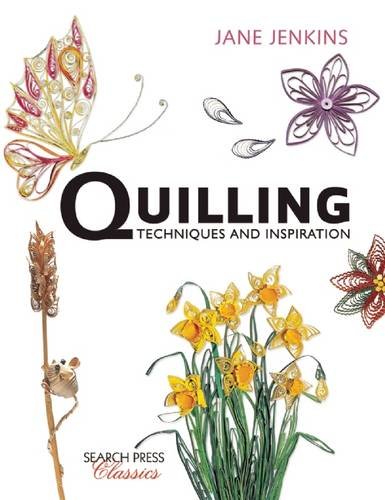
Jane Jenkins explains quilling techniques from closed loose coils to fringed flowers, with step-by-step photographs for clarity. She has designed a beautiful project to go with each technique so that new quillers can build their skills while producing quilled works of art. She shows how to make Art Nouveau and fantasy figures, Victorian fans, butterflies, candlestick holders and more. The beautiful, intricate and delicate filigreed patterns and pictures she creates are original and unique – and guaranteed to get you ‘rolling’.
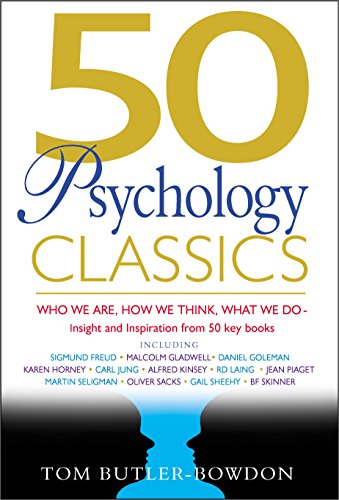
50 Psychology Classics is a thinking person’s guide to popular psychology. In a journey that spans 50 books, hundreds of ideas, and over a century in time, it explores important contemporary writings such as Gladwell’s Blink and Seligman’s Authentic Happiness as well as wisdom from key figures in psychology’s development. Includes commentaries, biographical information, and a guide for further reading.